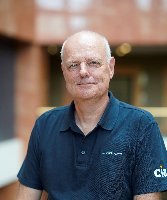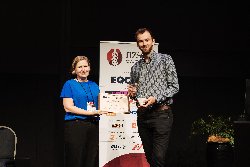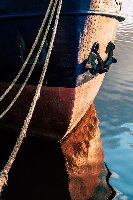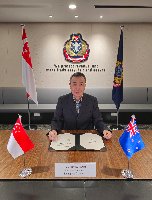Chatham Rock Phosphate Joins Safer Phosphates
Chatham Joins Safer Phosphates
WELLINGTON New
Zealand – Chatham Rock Phosphate Limited (TSXV:
“NZP” and NZAX: “CRP” or the “Company") advises
that we have joined joined Safer Phosphates, an organization
created to promote the use of safer phosphates. The
organization has been formed by stakeholders concerned about
the potential health risks posed by heavy metal content in
phosphate and includes other phosphate producers or near
producers such as Arianne Phosphates, PhosAgro PJSC of
Russia and Foskor of South Africa.
As Chatham announced recently the EU executive proposed the limit be set at 60mg/kg, falling to 40mg after three years and 20mg after 12 years under planned rules for fertilisers carrying the CE mark. It was agreed that producers need longer transition periods before the introduction of the lower limits.
These limits are significantly lower than the voluntary limit of 280 parts per million imposed in New Zealand.
The European Environmental Bureau, a 140-strong network of organisations, welcomed the outcome of the vote, noting “farming remains the last major bastion of cadmium exposure”.
Cadmium is a carcinogen and also linked to osteoporosis, kidney failure, heart disease, and fertility problems, said Faustine Bas-Defossez, in charge of agriculture policy at EEB. “Around 910,000 adults in France alone exceed tolerable intake limits of cadmium by 90%,” she said.
The reduced cadmium limits will affect a significant proportion of traded rock phosphate including rock sourced from Egypt, Israel, Boucraa & Youssoufia (Western Sahara/Morocco), Senegal, Togo, Tunisia, Nauru and Christmas Island.
According to Chatham Rock Phosphate managing director Chris Castle “rock from these sources will not be able to be sold in Europe unless the existing high levels of cadmium have been removed. Even if this is possible it will add another layer of costs.
“The good news is that cadmium levels in Chatham Rise rock phosphate are among the lowest in the world.”
About Safer Phosphates
Safer Phosphates is a collaboration of several current and pending producers, as well as other stakeholders, to share knowledge and address concerns about potentially harmful contaminants such as heavy metals that are present in some phosphate-based fertilizers. The goal is to improve the understanding of the potential risks and promote solutions that optimize healthier fertilizer choice to support food security and sustainable agriculture.
About Chatham Rock Phosphate
Chatham Rock Phosphate is the custodian of New Zealand’s only material resource of environmentally friendly pastoral phosphate fertiliser. Our key role is connecting the resource with those who need it.
Using this phosphate will support sustainable farming practices, including healthier soils and reduced accumulation of the heavy metal cadmium, reducing carbon emissions and dramatically lowering runoff to waterways and shrinking fertiliser needs over time.
The resource represents one of New Zealand’s most valuable mineral assets and is of huge strategic significance because phosphate is essential to maintain New Zealand’s high agricultural productivity.
New Zealand’s current access to phosphate is vulnerable to economic and political events in the six countries controlling 98% of the world’s phosphate reserves, with 85% of the total in the Western Saharan state of Morocco.
Chatham takes very seriously the responsibility vested in it through its mining permit to use the world’s best knowledge and technology to safely extract this resource to help sustainably feed the world.
Our initial environmental consenting process independently established extraction would have no significant impact on fishing yields or profitability, marine mammals or seabirds.
ENDS


 John Mazenier: Gaffer Tape And Glue Delivering New Zealand’s Mission Critical Services
John Mazenier: Gaffer Tape And Glue Delivering New Zealand’s Mission Critical Services Earthquake Commission: Ivan Skinner Award Winner Inspired By Real-life Earthquake Experience
Earthquake Commission: Ivan Skinner Award Winner Inspired By Real-life Earthquake Experience Reserve Bank: Consultation Opens On A Digital Currency For New Zealand
Reserve Bank: Consultation Opens On A Digital Currency For New Zealand NIWA: Ship Anchors May Cause Extensive And Long-lasting Damage To The Seafloor, According To New Research
NIWA: Ship Anchors May Cause Extensive And Long-lasting Damage To The Seafloor, According To New Research New Zealand Customs Service: A Step Forward For Simpler Trade Between New Zealand And Singapore
New Zealand Customs Service: A Step Forward For Simpler Trade Between New Zealand And Singapore Horizon Research: 68% Say Make Banks Offer Fraud Protection
Horizon Research: 68% Say Make Banks Offer Fraud Protection



